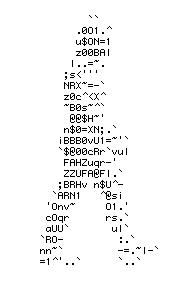How do You get the News?
Wie verändert das Internet die Art und Weise, wie man an News kommt? Interessante überlegungen von Mark Trahant, editor of the editorial page, beim Seattle Post Intelligencer:
But if the country were truly wireless, reporters on the scene -- joined by a new breed of instant commentators, called bloggers -- could be detailing events almost as they happen. And if we're holding a small computer (or even a cell phone), we will have the information quickly. If the reporter on the scene is using a cell phone with video, we might even become more of a witness because we could have a C-SPAN for specific things that interest a person, group or company.
The best thing about this is that the news gets personal. We might be near a time when individual reporters are hired to cover a story that interests a narrow community -- one event or court case at a time. This is news that matters to a smaller audience, even one person. It could include court cases, zoning actions or anything that involves a contest with some sort of resolution. It could even be a child's sporting event or school play "covered" by another family member.
This process shouldn't end news as we know it. The general report still might come later -- when it becomes of interest to a larger pool of readers or viewers.
Mark Trahant: Technology changes how we get news (Quelle: Seattle Post Intelligencer)
But if the country were truly wireless, reporters on the scene -- joined by a new breed of instant commentators, called bloggers -- could be detailing events almost as they happen. And if we're holding a small computer (or even a cell phone), we will have the information quickly. If the reporter on the scene is using a cell phone with video, we might even become more of a witness because we could have a C-SPAN for specific things that interest a person, group or company.
The best thing about this is that the news gets personal. We might be near a time when individual reporters are hired to cover a story that interests a narrow community -- one event or court case at a time. This is news that matters to a smaller audience, even one person. It could include court cases, zoning actions or anything that involves a contest with some sort of resolution. It could even be a child's sporting event or school play "covered" by another family member.
This process shouldn't end news as we know it. The general report still might come later -- when it becomes of interest to a larger pool of readers or viewers.
Mark Trahant: Technology changes how we get news (Quelle: Seattle Post Intelligencer)
Cyberwriter - 2. Okt, 11:07 - online Journalism
0 Kommentare - Kommentar verfassen - 0 Trackbacks





















Trackback URL:
https://cyberwriter.twoday.net/stories/81134/modTrackback